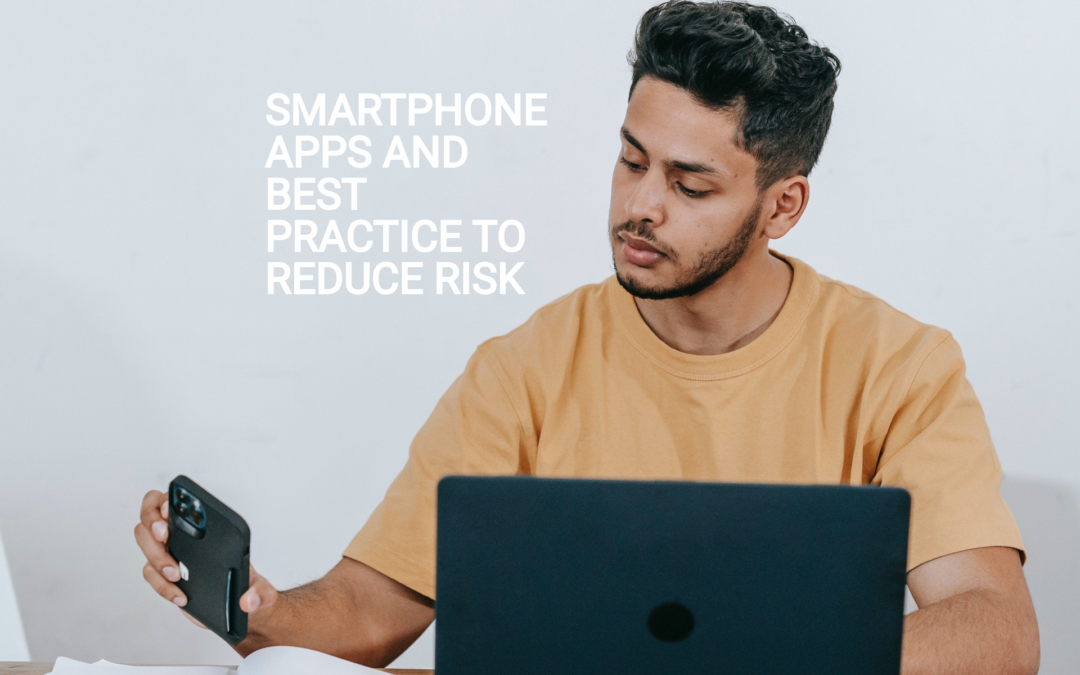
Smartphone Apps and Best Practice to Reduce Risk
There are many benefits to smartphones in the healthcare industry, however, there is also huge potential for HIPAA violations of patient privacy to be violated. It’s important to know what risk is associated with smartphones and other mobile devices.
CISA, or Cybersecurity and Infrastructure Security Agency, says “Mobile apps may gather information from your mobile device for legitimate purposes, but these tools may also put your privacy at risk.”
So, what are the risks associated with mobile device applications?
Apps are a convenient tool to access the news, get directions, or pick up rideshare, but these tools may also put your privacy at risk.
CISA says, when you download an app, it may ask for permission to access personal information—such as email contacts, calendar inputs, call logs, and location data—from your device. CISA goes on to say, “You should be aware that app developers will have access to this information and may share it with third parties, such as companies who develop targeted ads based on your location and interests.”
How can you avoid malicious apps and limit the information apps collect about you?
First, it’s helpful to reiterate that employee devices are for work purposes only. Therefore, applications on your workplace devices, including mobile devices must be approved by your Supervisor and must follow device guidelines set in place by your organization.
Employees must refrain from downloading, installing, and using apps such as social media platforms. Therefore, employees should refrain from posting, commenting, or sharing patient information on social media including patient names, photos, and descriptors that would identify the patient.
What steps can you take to secure data on your mobile devices?
- When using a public or unsecured wireless connection, avoid using apps and websites that require personal information and turn off Bluetooth.
- Avoid connecting your smartphone to any computer or charging station that you do not control. Charging stations are often found at transportation terminals and are not secure! Connecting a device to a computer using a USB cable can allow software running on that computer to interact with the phone.
- Do not leave your device unattended in public or in easily accessible areas.
- Ensure your device requires a password or biometric identifier to access it, so if is stolen, thieves will have limited access to its data.
If your device is stolen or misplaced, first, contact your IT administrator, supervisor, and/or designated HIPAA Security Officer immediately and notify them of the situation for immediate next steps. In general, it’s advised to, follow your organization’s Incident Response Policy immediately.
At Live Compliance, we make checking off your compliance requirements extremely simple.
-
- Contact-free, accurate Security Risk Assessments are conducted remotely. All devices are thoroughly analyzed regardless of location. Conducting an accurate and thorough Security Risk Assessment is not only required but is a useful tool to expose potential vulnerabilities, including those such as Password Protection.
- Policies and Procedures are curated to fit your organization ensuring employees are updated on all Workstation Use and Security Safeguards in the office, or out. Update in real-time.
- Electronic, prepared document sending and signing to employees and business associates.
Call us at (980) 999-1585 or visit www.LiveCompliance.com.
ABOUT EZCLAIM:
As a medical billing expert, EZClaim can help the medical practice improve its revenues since it is a medical billing and scheduling software company. EZClaim provides a best-in-class product, with correspondingly exceptional service and support. Combined, EZClaim helps improve medical billing revenues. To learn more, visit EZClaim’s website, email them, or call them today at 877.650.0904.
[ Contribution from the marketing team at Live Compliance ]

